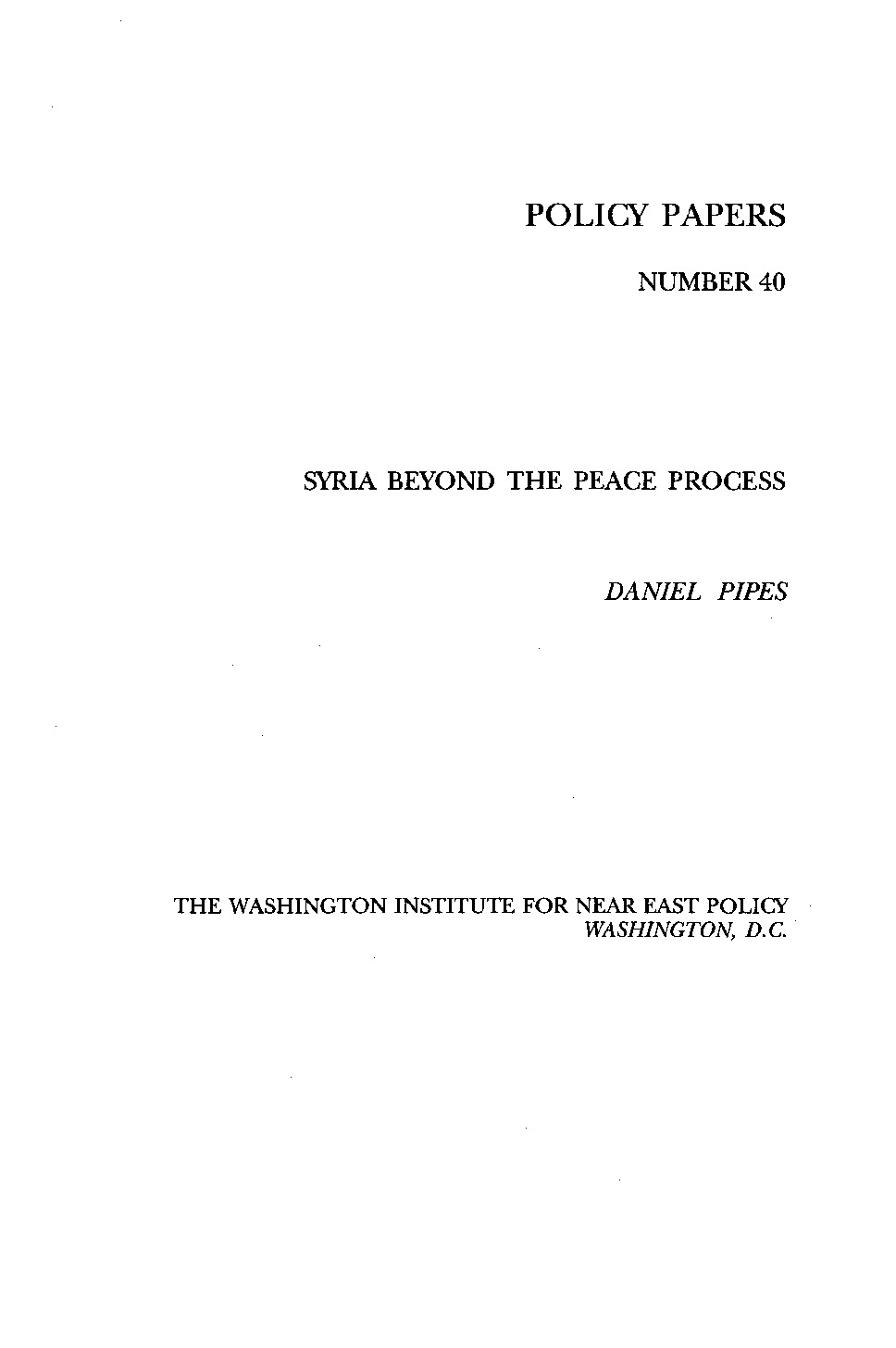While the pursuit of Arab-Israeli peace justly remains the dominant U.S. interest in the Levant, it is important to assess Syrian politics through a wider political lens. Since coming to power in 1970, Assad has imposed a brutal, authoritarian police state that has brought an unprecedented measure of stability to historically anarchic Syria and inter alia elevated his long-persecuted Alawi minority to control of the regime's political and military apparatus. From the start, regime maintenance and ensuring a family succession have been Assad's top priorities, with all other policies -- from the Arab-Israeli conflict to inter-Arab relations to support for international terrorism -- instrumental tools in the effort to keep stability and security at home.
In this Policy Paper, Daniel Pipes argues that conventional political analysis of the Syrian regime of Hafez al-Assad focuses too heavily on the narrow questions relating to the Arab-Israeli peace process and too lightly on Assad's own interests, political ambitions, and style of decision making. Analytically, such tunnel vision misrepresents Assad's priorities, in which regime survival, continuity of Alawi supremacy, and suzerainty over Lebanon are ranked above the reclamation of the Golan Heights. Operationally, this approach limits Washington's ability to secure other regional interests (e.g., fighting terrorism, preventing the proliferation of weapons of mass destruction, promoting human rights, and combating the spread of radical Islamic fundamentalism) and, ironically, reduces U.S. leverage to win peace process concessions from Damascus.
-
126 pages



